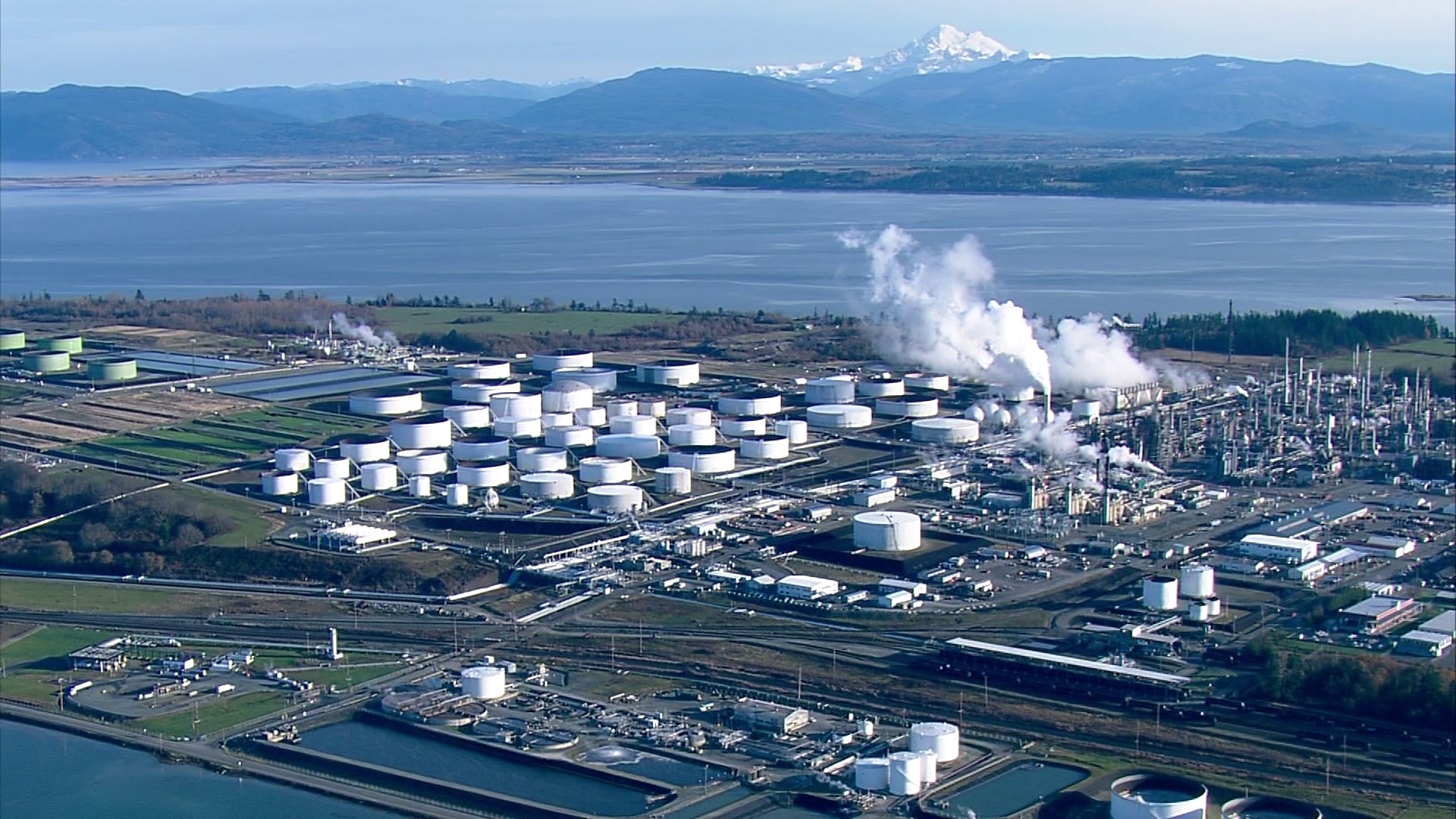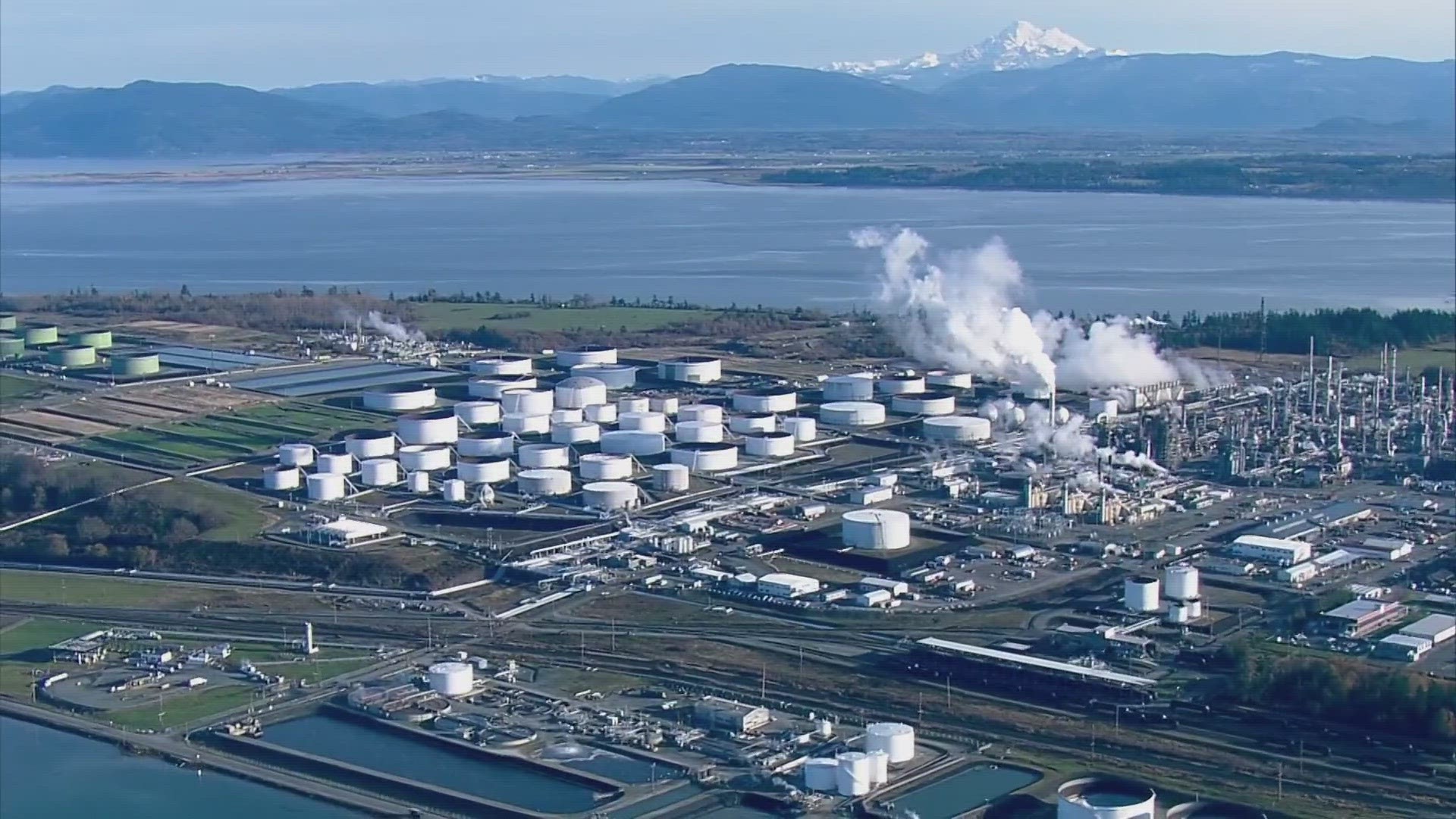Washington is missing key climate goals, advocates claim state leaders lack transparency
A state agency was created to set, track, measure and publicize goals such as environmental targets, but the metrics have mostly been scrubbed from its website.

The state of Washington carries the reputation of being an environmental leader – a state with aggressive climate change policies championed by a governor who ran for president in 2019 on that exact platform.
“It is our moment to solve America’s most daunting challenge and make it the first, foremost and paramount duty of the United States and that is to defeat climate change,” said Governor Jay Inslee at his presidential campaign kickoff event.
But here at home in Washington, the state isn’t meeting many of the identified environmental goals.
- Washington State Department of Ecology records show over the last 12 years, the state’s recycling less, not more. The rate was 50.7% in 2011. The latest available data shows the rate fell to 40.7% in 2021.
- Greenhouse gas emissions from transportation, the state’s biggest carbon polluter, are up, not down. Emissions in 2019, the latest data provided by the state, were at 40.3 million metric tons (MMT). That’s 4.8 MMT over the state’s goal and a 2.8% increase over the amount in 2018.
- Overall, carbon emissions are up as well, despite a state law requiring a reduction. In 2019, the state’s greenhouse gas emissions rose 6.9% from the prior year to 102.0 MMT. That is 9.3% higher than the 93.5 MMT limit in statute.
Emissions from 2020 are expected to be down due to the drastic reduction of cars on the road during the pandemic. A spokesperson for Gov. Inslee said there’s a lag in receiving data sets from the federal government, but the information should be released in December, 2024.
“(The state Department of) Ecology thinks we will likely hit our 2020 emissions limit (which will put the state into legal compliance) but we won’t know that until the next inventory report comes out,” wrote Mike Faulk, deputy communications director and press secretary for the Office of Governor Jay Inslee, in an email.
“A lot of areas we’re failing badly,” said Todd Myers, Environmental Director at the Washington Policy Center, a conservative Seattle-based think tank. “It is critical that state government and politicians live up to their promises and meet those goals so that the people of the state of Washington get what they voted for and get what they’re paying for, that’s critical.”
Washington is leading the way in getting electric vehicles on the road. Gov. Inslee set a goal in 2013 of increasing the number of registered electric vehicles in the state from 8,000 to 50,000 by 2020. Washington hit that target ahead of time and currently there are approximately 150,000 electric vehicles on Washington’s roads.
Electrifying state-owned vehicles The state had a goal to shift all of its vehicles to electric by 2035, but it won't hit the mark
But in this area, the state is not leading by example. At a 2021 UN Climate Summit in Scotland, Inslee announced he’d signed an Executive Order mandating that 100% of the state-owned vehicles be electric by 2035.
But a new state report shows Washington agencies are not making much progress and are “unlikely to meet that goal.”
There’s also a state law requiring 100% of the state’s fleet of vehicles run on electricity or biofuels by 2015. According to the Washington State Department of Enterprise Services (DES) that manages 35% of the fleet, the state isn’t close to hitting the goals outlined in law. According to DES, the agencies purchased approximately 2,000,000 gallons of fuel between October 2022 and September 2023. Of that 98.9% of the fuel was unleaded gasoline or diesel. Biodiesel amounted to a small fraction and 1% was electric.
“It’s challenging to do it but it’s very important that we follow through on our commitments, because the climate doesn’t care what we say, it cares what we do,” said Matthew Metz, founder of Coltura, a non-profit dedicated to eliminating gasoline use in the United States. “They’re asking the private sector to make a lot of change for the climate, which needs to be done, but the state also really needs to do it.”
Faulk, of the Office of the Governor, said Inslee has made his priorities clear to state agencies, but other policies he’s helped bring to fruition are of greater importance in fighting climate change.
In a statement, Faulk wrote: “It’s important the state lead by example, and the governor has emphasized the importance of decarbonization to agency leaders many times over the last decade."
"We care a lot about meeting our goals under the laws and (Executive Orders KING is reporting on), but it should also be clear that these laws and (Executive Orders) are not our big drivers for decarbonization in Washington. That’s the Climate Commitment Act, Clean Energy Transformation Act, Clean Fuel Standard, Advanced Clean Cars II, building codes, the Clean Buildings Act, and more,” wrote Faulk in the statement.
Results Washington: 'The right thing to do' A state agency was created to measure progress of environmental targets. But, what if no one is keeping count?
When Inslee came into office 10 years ago, he created via Executive Order a state agency Results Washington - to set, track, measure and publicize state goals such as environmental targets. It was part of the state’s mission to adopt lean management principles through a strategy of performance management and continuous state government improvement.
“Holding ourselves accountable for results to the citizens of Washington isn’t politically expedient,” Inslee said at the time. “But it is clearly the right thing to do.”
That was the purpose of Results Washington, according to Inslee’s advisor in setting up the new state agency.
“The intent was results-driven government,” said John Bernard, who is also a state government transformation expert and author of the book Government That Works. “The purpose of it was to get focused on measurable improvement. Measure and see if things are working. We’re spending a lot of money here. ‘Does that money get what we’re trying to get done?’”
But over the years, Results Washington has watered down the results. The agency has scrubbed most of the environmental goals and measurements from its website. Instead, it now features pages of state reports, links to federal information, graphs, maps, and spreadsheets.
“I think it’s a lost opportunity," Bernard said. “If you are wanting to be results driven, and you don’t keep score, it’s literally impossible to know if you’re doing well. It’s literally like playing basketball without keeping score.”
Myers, of the Washington Policy Center, said he thinks Results Washington changed course because its mission wasn’t politically beneficial.
“If you’re going to run as the climate candidate for president of the United States and your own state agency says you’re not meeting your climate goals, that’s rather inconvenient,” Myers said.
The director of Results Washington sent a statement saying politics did not come into play when the agency made changes.
“We did not remove any metrics due to performance issues, but evaluated how to best share the metrics and associated targets for climate-related goals without causing any confusion,” wrote Results Washington Director Mandeep Kaundal. “Our goal is to make it easier to access all the information at first glance, and we are currently evaluating our process to make it easier to access the information and minimize additional clicks as possible.”
No time for an interview, Inslee's staff says A promised interview to discuss climate policies and missed targets never happened.
At a public event at Colman Dock in October, Gov. Inslee told KING 5 reporters he would “sit down and do an interview” to discuss climate policies and missed targets. “'Why don’t we arrange an interview? Let’s do that,’” Inslee said at the time.
That promised interview never happened.
Press Secretary Faulk said Inslee didn’t have time in his schedule and that there was “confusion” over whether the governor had committed to speaking with KING.
In an earlier email, Faulk said KING’s reporting was off the mark.
“Based on all the information you’ve given me, it sounds like your focus is on a small piece of the policy pie, not the governor’s whole strategy. Not even close. What you’re looking at doesn’t even touch on the $2.1 billion in Climate Commitment Act funds we’ve allocated this biennium and what it goes to, the state’s progress on transitioning to all clean energy by 2045, our incredible environmental justice law, the ban on new gas-powered cars by 2035, new building standards and heat pump rules, salmon restoration, the youth Climate Corps, it goes on,” Faulk wrote. “They’re not footnotes to a story. They’re the lead.”
Government transparency proponents said policies are one thing, but being open about goals and whether or not the state is hitting them is another.
“Government exists to help make our world a better place,” former Inslee advisor Bernard said. “’If I don’t keep score, how do I know if I made a difference?’ And we need them to make a difference. We need the accountability, not just for the people who work in the state, but the people who govern or make the laws, they need to be accountable.”


